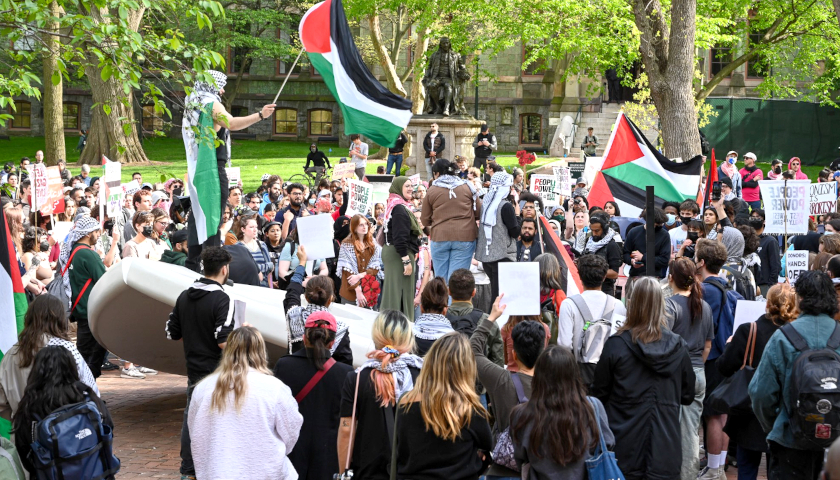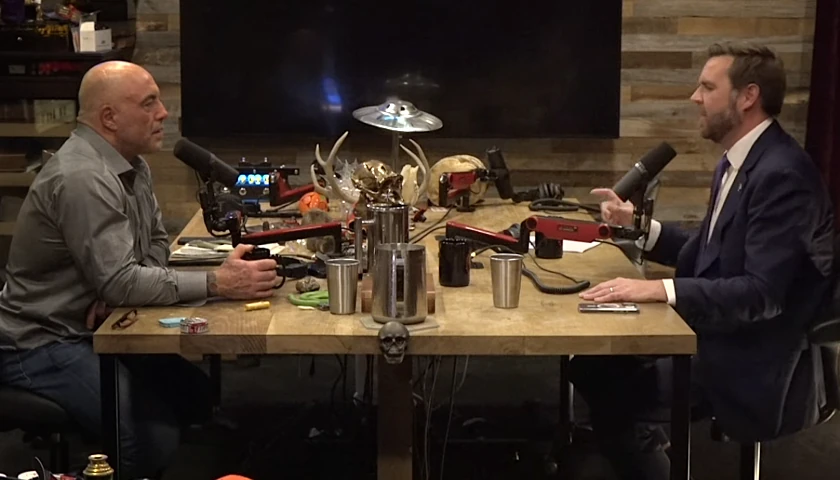by Tate Miller
In response to pro-Palestine unrest on campus last semester, the University of Pennsylvania has temporarily banned encampments and overnight demonstrations for the 2024-2025 school year.
“To ensure the safety of the Penn community and to protect the health and property of individuals, encampments and overnight demonstrations are not permitted in any University location, regardless of space (indoor or outdoor),” the university announced in its policy book’s section entitled Temporary Standards and Procedures for Campus Events and Demonstrations section.
“Unauthorized overnight activities will be considered trespassing and addressed,” according to the Temporary Standards and Procedures.
Pro-Hamas encampments protesting the war in Gaza spread to the University of Pennsylvania’s grounds in April, The Center Square previously reported.
The encampment at Penn was disbanded by the school in May after the university responded to Gov. Josh Shapiro’s call for action.
According to Temporary Standards and Procedures, “throughout the 2023 -2024 academic year, Penn community members have urged the University to clarify guidance and policies on campus events and demonstrations.”
“This call for increased clarity has emerged as a priority recommendation in the reports of both the University’s Task Force on Antisemitism, the Presidential Commission on Countering Hate and Building Community, as well as the Faculty Senate,” as stated in the Temporary Standards and Procedures.
The Center Square reached out for comment to University Task Force on Antisemitism’s chair Mark S. Wolff; vice chair Beth Winkelstein; faculty representative Eric A. Feldman; faculty representative Abraham J. Wyner; and staff, alumni, and trustee representative Rev. Charles Lattimore Howard. None but Wyner responded.
“I would hope that enforcement of paragraph XII.v. would be quite helpful in fighting antisemitism, in so far as threatening or harassing Jewish students or Jewish groups exclusively because on their commitment and support of Israel would now clearly be considered a violation of the new (temporary) standard (i.e. harassment/intimidation based on religion),” University Task Force faculty representative Abraham J. Wyner told The Center Square.
The Center Square reached out to the Faculty Senate email twice and received no response.
“The purpose of these Temporary Standards and Procedures is to reinforce and reaffirm Penn’s commitment to open expression,” interim president J. Larry Jameson and others wrote in a letter addressed to “all students, faculty, staff, and post-docs.”
The letter was shared with The Center Square by Steve Silverman of Penn’s media relations.
According to the letter, Penn’s new temporary policies are also to “ensure that events, demonstrations, and other expressions of free speech are appropriately managed, while allowing Penn to deliver its core missions of teaching, research, service, and patient care without disruption.”
In addition to initiating the temporary standards and procedures, the letter said that “a faculty-led Task Force will be charged with reviewing the Guidelines on Open Expression and making recommendations for revisions to the Guidelines.”
“Penn remains steadfast in its commitment to freedom of thought, inquiry, speech, and lawful assembly, and it is essential from time to time that we review the Guidelines on Open Expression to ensure they are supporting these foundational commitments,” the letter said.
– – –
Tate Miller is a contributor at The Center Square.
Photo “UPenn Pro-Palestine Protest” by PennFJP.









